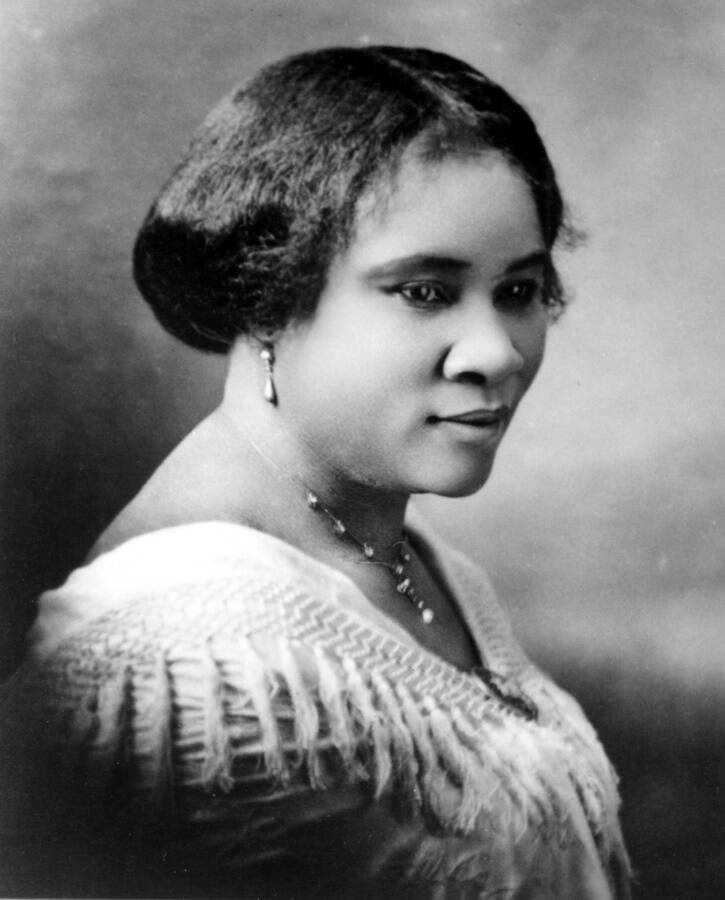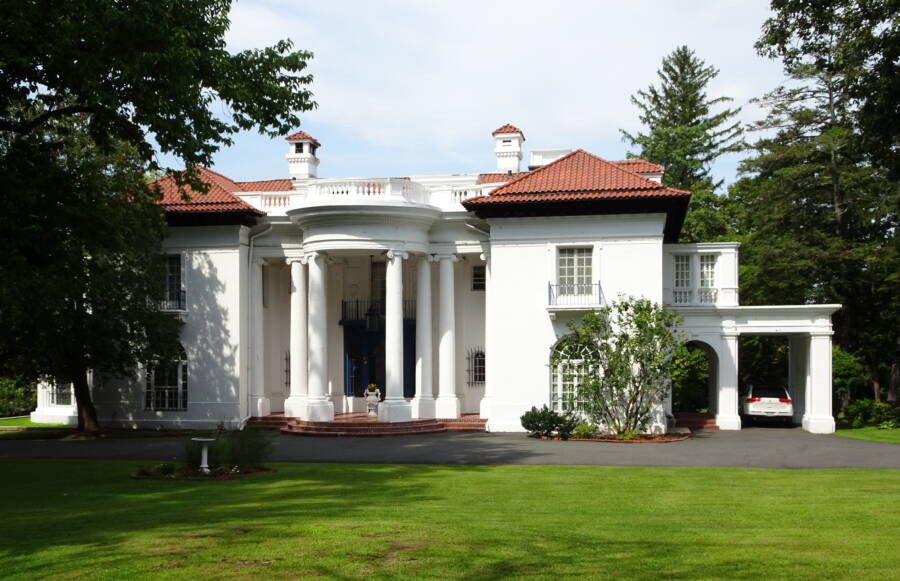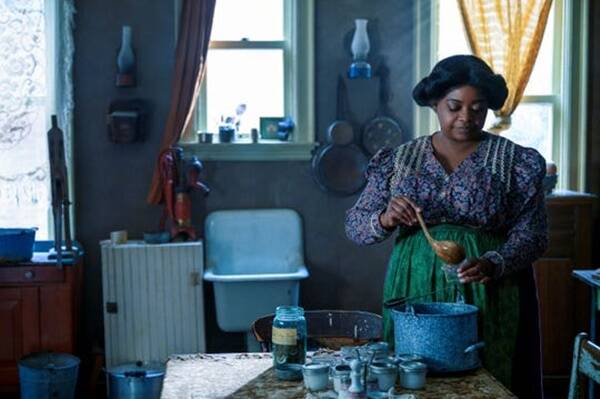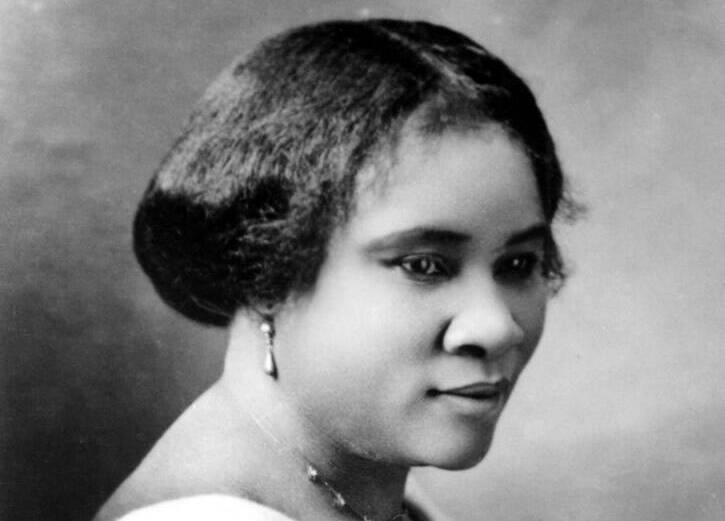Madam C.J. Walker emerged as one of the wealthiest women in America during the early 20th century — yet her journey was far from smooth.
In a genuine rags-to-riches narrative, Walker transitioned from a single mother laboring as a washerwoman to a triumphant entrepreneur.

This is the extraordinary true account of Madam C.J. Walker, hailed as "the first Black woman millionaire in America."
Madam C.J. Walker: The Early Years
Prior to ascending to wealth as a business magnate, Madam C.J. Walker entered the world as Sarah Breedlove on December 23, 1867, in Delta, Louisiana. Her parents, Owen and Minerva Anderson Breedlove, transitioned from slavery to sharecropping following the Civil War.

As one of six children, Breedlove's arrival held profound significance. Unlike her parents and siblings, who had experienced enslavement, she was the initial member of her immediate family to enter the world as a free Black individual.
Nevertheless, the post-war era brought economic and racial turmoil, plunging the freeborn child into a milieu of racial discord.
A faction of white vigilantes known as the "Knights of the White Camelia" instilled fear among Louisiana's Black populace, advocating for white political dominance and perpetuating white supremacy.

Walker's parents tried to shield their children from the surrounding violence, largely succeeding. According to childhood confidante Celeste Hawkins, the future Madam C.J. Walker embodied an "open-faced good gal." The duo frequently reveled in neighborhood picnics and fish fry gatherings during their youth.
Tragically, by the age of seven, both of Walker's parents had passed away. She found herself compelled to reside with her sister and her abusive brother-in-law. Following a stint in the cotton fields, the young Walker married Moses McWilliams, partly as a means to escape the maltreatment at her sister's household. She was a mere 14 years old at the time.
In 1887, widowed with a two-year-old daughter and devoid of financial resources, Walker embarked on a journey of desperation. Packing her belongings, the young mother relocated with her daughter, Lelia, to St. Louis, Missouri, where her brothers resided.
The Making Of Madam C.J. Walker

In St. Louis, circumstances improved marginally for the future Madam C.J. Walker. She secured employment as a laundress and cook, while also affiliating herself with the influential congregation of the African Methodist Episcopal Church.
During this period, the struggling mother encountered her second husband, John Davis, yet their union disintegrated due to allegations of abuse. Compounded by the weight of being the primary breadwinner in her family, Walker persisted in her relentless efforts to afford her daughter a brighter future.
"I did washing for families in St. Louis, and saved enough… to put my little girl in a school in Knoxville, Tennessee," she reminisced years later.
As she toiled long hours, Walker began grappling with hair loss, likely exacerbated by her occupation as a laundress, exposing her to harsh lye soap and scalding steam. Additionally, the limited access to regular hair washing, a luxury in an era devoid of indoor plumbing, likely contributed to her predicament.
It wasn't until 1904 that Walker's life underwent a profound transformation. Introduced to a hair product named "The Great Wonderful Hair Grower," crafted by fellow Black female entrepreneur Annie Turbo Malone, Walker found herself captivated by its efficacy. Eager to delve deeper into its potential, she swiftly transitioned into one of Malone's sales agents.
Equipped with newfound knowledge, Walker resolved to formulate her own line of hair-care products. Thus, in 1905, the burgeoning entrepreneur relocated to Denver, where she encountered her third husband, Charles Joseph Walker, known as C.J. Walker. Following their nuptials, she adopted the moniker Madam C.J. Walker, heralding the commencement of a new chapter in her life.
Madam C.J. Walker's Beauty Empire

With determination, beauty expertise, and a mere $1.25, Madam C.J. Walker boldly launched her own array of hair products centered around her groundbreaking creation, "Madam C.J. Walker's Wonderful Hair Grower."
Embarking on a grassroots approach, she personally peddled her wares door-to-door, imparting invaluable hairstyling and care tips to Black women. As demand surged, Walker transitioned her operation into a mail-order business, setting the stage for the expansion of her burgeoning enterprise.
Following her separation from her third spouse, Walker relocated to Indianapolis, Indiana, in 1910. There, she erected a factory for her Walker Manufacturing Company, alongside establishing a salon and a beauty school to educate her sales agents.
In addition to nurturing her brand, she made significant investments in her Black workforce, ultimately providing employment opportunities to approximately 40,000 African American individuals.

As Madam C.J. Walker's wealth and influence grew, so did her commitment to giving back to her community through acts of generosity and philanthropy.
Her pledge of $1,000 to establish a new YMCA center within the Black community of Indianapolis served as a potent symbol of Black achievement during a time when such prosperity for an African American was virtually unheard of.
However, not all members of the Black community initially embraced her endeavors. Booker T. Washington, a prominent figure, initially overlooked her achievements. When he attempted to deny her a platform to speak at the esteemed National Negro Business League convention in 1912, Madam C.J. Walker responded with unwavering resolve:
"Surely you are not going to shut the door in my face. I am a woman who came from the cotton fields of the South. I was promoted to the washtub. From there, I was promoted to the kitchen. And from there, I promoted myself into the business of manufacturing hair goods and preparations. I have built my own factory on my own ground!"
The next year, Washington extended an invitation to Walker to serve as one of the keynote speakers at the convention.
The Weight Of Her Legacy Today

Madam C.J. Walker was renowned for her philanthropic efforts and activism. She sponsored the education of six African American students at the prestigious Tuskegee Institute and actively participated in the anti-lynching movement.
In 1917, she organized the Walker Hair Culturists Union of America convention in Philadelphia, a landmark event that brought together 200 agents and became one of the first national gatherings of American women in business.
Just before her death from kidney failure at the age of 51 in 1919, Walker revised her will, dedicating two-thirds of her company's future net profits to charitable causes. Additionally, she allocated $100,000 to various orphanages, individuals, and educational institutions for young people.
Madam C.J. Walker's remarkable legacy of resilience, ambition, and philanthropy lives on through her great-great-granddaughter A'Lelia Bundles, who continues to honor her ancestor's achievements.
Her inspiring life story was adapted into the Netflix miniseries "Self Made," starring Academy Award-winning actress Octavia Spencer. Originally released on March 20, 2020, the series celebrates Walker's extraordinary journey.
Despite her immense success, Walker always attributed her achievements to a simple philosophy:
"There is no royal flower-strewn path to success, and if there is, I have not found it, for whatever success I have attained has been the result of much hard work and many sleepless nights. I got my start by giving myself a start. So don't sit down and wait for the opportunities to come. You have to get up and make them for yourselves!"



